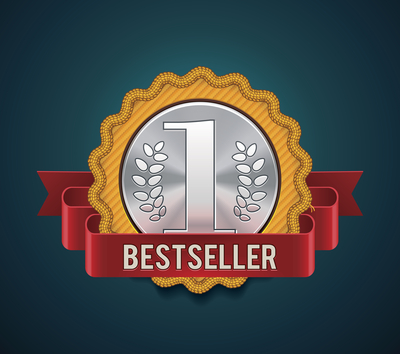
In my years in publishing, one of the most interesting aspects has been the evolution of bestseller lists. The primary source of confusion for authors and publishers of Christian books is that the most influential bestseller lists (New York Times, USA Today, Publishers Weekly) do not consider sales of books at Christian retailers in their calculations to any great extent. Hence, Christian books are handicapped from the beginning as they compete with the general market/non-Christian books on the various lists.
There is no comprehensive national bestseller list for Christian books. There are lists that count sales mostly in general retail and those that count sales mostly in Christian stores, but there is no list that combines the sales in any meaningful way. Add to this the large number Christian books sold through ministries, specialty racks (Choice Books, etc.), book clubs and by authors themselves. None of those sales count for best-seller lists.
The music and movie industries have highly developed reporting processes for sales. Books do not. The only accurate reporting for all sales comes from publishers themselves, but with the potential for returns from various channels, that data is viewed in a long-term manner.
While there is some sampling of data from Christian channels in some of the most prominent lists, most of the sales are ignored. Here are some basics about the various lists:
- The New York Times (which is actually twenty different lists), USA Today and Publisher’s Weekly lists do not consider sales occurring in Christian-only channels to any great extent, which in most cases can reach 70% of the units sold of a title. Those sales included are only a sample.
- The bestseller list from CBA (the trade association for Christian retailers) is a good apples-to-apples monthly comparison within the stores who report to their proprietary CROSS:SCAN, but does not reflect anything outside of those stores.
- The bestseller list from ECPA (the trade association for Christian publishers) is also a good apples-to-apples comparison each month with data submitted to the PubTrack system from a variety of sources. ECPA combines sales from Christian and some general channels through their multi-channel list each month, but is really only good for comparison as the data is a sample.
- Bookscan data does not generate a bestseller list per se, but as a widely used data service, it pulls from a variety of sources, some Christian stores, but again, ignores the lion’s share of Christian channels. It is a sample of sales.
So, the best book publishing can offer is a sample of sales. There is no great conspiracy on the part of the influential secular lists to exclude Christian books…they simply consider Christian stores as “specialty” retailers. The same would be true for books sold in card and gift stores.
A final point about bestseller lists. They all have editors. That means no list is a simple download of data without review. If a book sells a majority of copies through one store that reports to one of the lists, it will probably be excluded from consideration since the sales are not spread broadly and do not reflect a widespread trend.
In the future, when you look at a bestseller list containing Christian products, be aware that the data included is a sample and take it with a measure of salt.
Your turn:
Did this post cause you to rethink anything?










